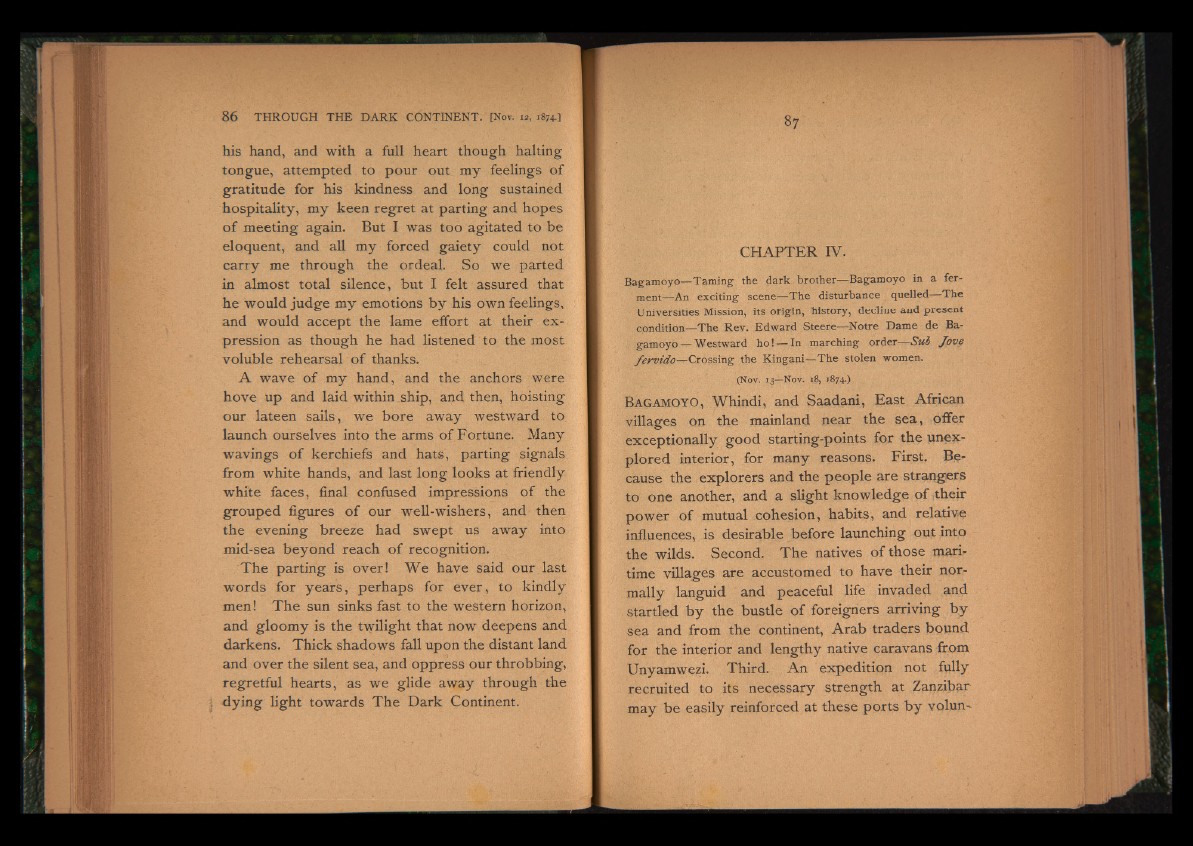
his hand, and with a full heart though halting
tongue, attempted to pour out my feelings o f
gratitude for his kindness and long sustained
hospitality, my keen regret at parting and hopes
o f meeting again. But I was too agitated to be
eloquent, and all my forced gaiety could not
carry me through the ordeal. So we parted
in almost total silence, but I felt assured that
he would ju d g e my emotions b y his own feelings,
and would accept the lame effort at their ex-,
pression as though he had listened to the most
voluble rehearsal o f thanks.
A wave o f my hand, and the anchors were
hove up and laid within ship, and then, hoisting
our lateen sails, we bore away westward to
launch ourselves into the arms o f Fortune. Many
wavings o f kerchiefs and hats, parting signals
from white hands, and last long looks at friendly
white faces, final confused impressions o f the
grouped figures o f our well-wishers, and then
the evening breeze had swept us away into
mid-sea beyond reach o f recognition.
T h e parting is over! W e have said our last
words for ye a r s , perhaps for ever, to kindly
men! T h e sun sinks fast to the western horizon,
and g lo om y is the twilight that now deepens and
darkens. Thick shadows fall upon the distant land
and over the silent sea, and oppress our throbbing,
regretful hearts, as we glide away through the
d y in g light towards T he Dark Continent.
CH A P TER IV.
Bagamoyo— Taming the dark brother— Bagamoyo in a ferment—
An exciting scene— The disturbance quelled— The
Universities Mission, its origin, history, decline and present
condition—The Rev. Edward Steere— Notre Dame de Bagamoyo
Westward ho! — In marching order— Sui Jove
fervido— Crossing the Kingani—The stolen women.
(Nov. 13—Nov. 18, 1874.)
B a g a m o y o , Whindi, and Saadani, East African
villages on the mainland near the s e a , pffer
exceptionally good starting-points for the unexplored
interior, for many reasons. First. Because
the explorers and the people are strangers
to one another, and a slight knowledge o f their
power o f mutual cohesion, habits, and relative
influences, is desirable before launching out into
the wilds. Second. T h e natives o f those maritime
villages are accustomed to have their normally
languid and peaceful life invaded and
startled b y the bustle o f foreigners arriving b y
sea and from the continent, A rab traders bound
for the interior and lengthy native caravans from
Unyamwezi. Third. A n expedition not fully
recruited to its necessary strength at Zanzibar
may be easily reinforced at these ports b y volun